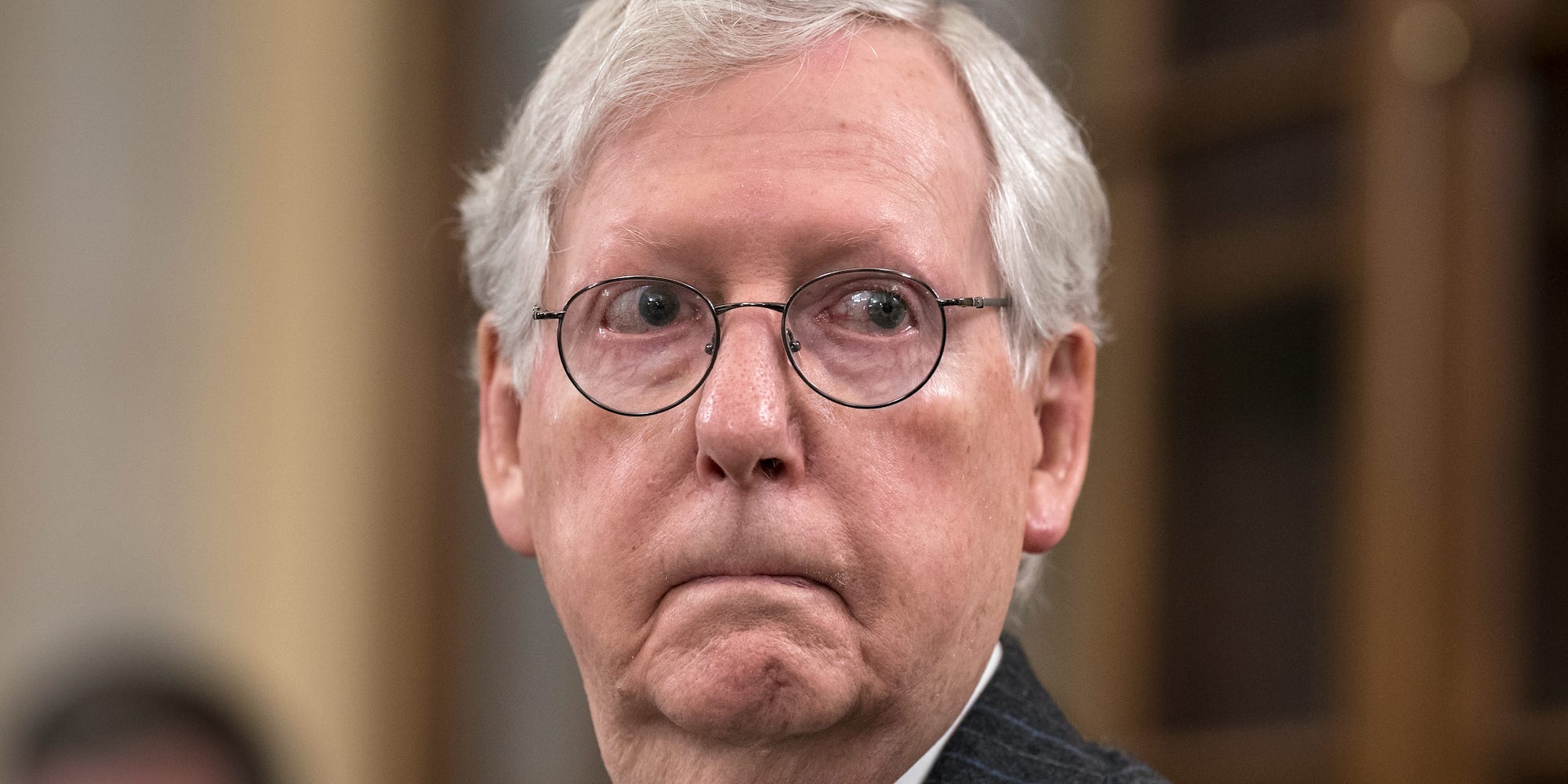
Scott J. Applewhite/AP
- McConnell claimed on Thursday that Biden's stimulus benefits are causing worker shortages.
- "We have flooded the zone with checks that I'm sure everybody loves to get, and also enhanced unemployment," he said.
- Some economists say a labor shortage would cause wages to rise, but that hasn't happened yet.
- See more stories on Insider's business page.
Senate Minority Leader Mitch McConnell on Thursday faulted the Biden administration for approving stimulus benefits, and claimed they are hurting the nation's economic recovery.
"We have flooded the zone with checks that I'm sure everybody loves to get, and also enhanced unemployment," McConnell said from Kentucky. "And what I hear from businesspeople, hospitals, educators, everybody across the state all week is, regretfully, it's actually more lucrative for many Kentuckians and Americans to not work than work."
He went on: "So we have a workforce shortage and we have raising inflation, both directly related to this recent bill that just passed."
McConnell's comments reflect longstanding GOP concerns about disincentivizing people from returning work as a result of issuing direct payments and federal unemployment benefits. Democrats approved a massive $1.9 trillion stimulus package in March, arguing many households needed immediate financial aid from the government.
No Republicans voted for the relief package. The unemployment rate has steadily fallen to 6%, and new claims have dropped for four weeks in a row.
But employers are growing alarmed over worker shortages, particularly those in the restaurant sector, while shortages of commodity goods are causing massive price increases in certain pockets of the economy. The trends caused the White House to defend its policies on Thursday. White House Deputy Press Secretary Karine Jean-Pierre said there was "little evidence" that enhanced unemployment insurance was enticing people away from work.
Some economists note that a key feature of a labor shortage - rising wages - is not in evidence, as businesses typically take that step to lure job-seekers from a scarce pool.
"When you don't see wages growing to reflect that dynamic, you can be fairly certain that labor shortages, though possibly happening in some places, are not a driving feature of the labor market," Heidi Shierholz, economist and director of policy at the left-leaning Economic Policy Institute, wrote on Twitter. "And right now, wages are not growing at a rapid pace."
Federal Reserve Chairman Jerome Powell weighed in on the issue last week at a press conference. He said potential factors that could explain the shortage include a lack of childcare, lingering COVID-19 fears, and school closures.
"We don't see wages moving up yet. And presumably we would see that in a really tight labor market," Powell said. "And we may well start to see that."
